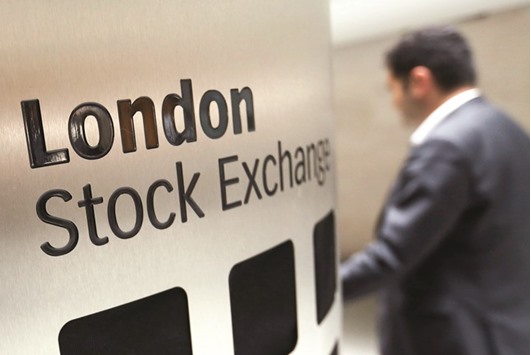The euro slumped yesterday after ECB chief Mario Draghi signalled that the time had not yet come to wind down unprecedented stimulus measures, although equities failed to get a boost.
Meanwhile, the dollar shot higher after data showed construction of new homes surged and December and first-time claims for unemployment benefits fell in mid-January.
As predicted, at its first policy meeting of 2017 the ECB kept interest rates at record lows and made no changes to its asset-purchasing scheme, which is designed to encourage spending and investment in a bid to drive up growth and inflation.
However, recent data have shown that inflation in the eurozone shot up to 1.1 in December, up from 0.6% in November, prompting critics to say the time for an exit from stimulus is approaching.
But Draghi stressed the jump was mainly down to rising oil prices, and that core inflation — which excludes volatile energy and food prices — remained weak and there was still reason to continue the stimulus measures.
“I am pretty sure that it will come the time, (and) then we will have to have a very deep, very careful discussion and analysis of the situation. But we are not there,” Draghi told reporters at a Frankfurt press conference.
He emphasised that “risks coming from global uncertainty” could weigh on the region’s fragile recovery, confirming the need “for a continued very substantial degree of monetary accommodation”.
Draghi added that the ECB was ready to increase asset purchases if necessary.
London’s FTSE 100 was down 0.5% at 7,208.44 points, Frankfurt’s DAX 30 slipped 0.02% at 11,596.89 points, whereas Paris’s CAC 40 fell 0.3% at 4,841.14 points at close. The Euro Stoxx 50 ended 0.2% down at 3,288.62 points.
Dealers took a speech by Yellen on Wednesday as a hint that US rates will rise further this year.
Positive housing and unemployment data yesterday morning confirmed that optimism, sending the dollar higher.
In the two months after Trump’s November election victory, the dollar soared against all other currencies on expectations his big-spending, tax-cutting plans will fan growth, ramp up inflation and force the Fed to lift borrowing costs.
But growing uncertainty in the past two weeks, made worse by a lack of policy detail from the president-elect, has sent investors scurrying back out of the US unit and stocks until they see signs of firm plans.
The Dow was down 0.2% approaching midday.
Oil prices meanwhile rose Thursday as energy watchdog the IEA said deeper cuts in Opec oil production are likely this month as producers increasingly implement a recent key deal to tackle oversupplies.

A visitor passes a sign inside the main atrium of the London Stock Exchange Group’s headquarters. London’s FTSE 100 closed 0.5% down at 7,208.44 points yesterday.
